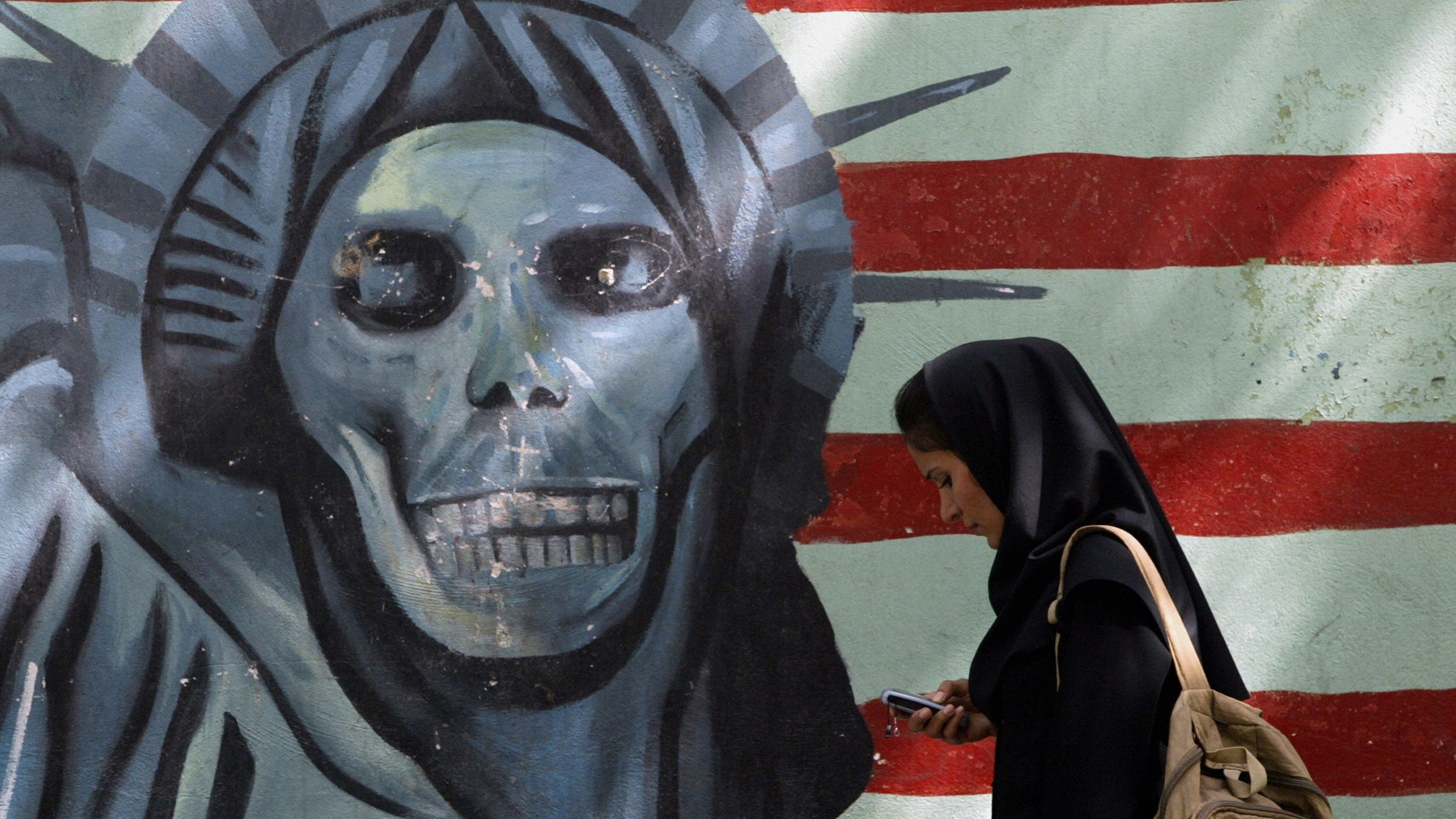How Iran is using bitcoin to dodge Trump’s sanctions
Tehran government issues 1,000 cryptocurrency mining permits in bid to kickstart struggling economy

A free daily email with the biggest news stories of the day – and the best features from TheWeek.com
You are now subscribed
Your newsletter sign-up was successful
Iran is turning to cryptocurrencies in a bid to offset the damage inflicted by US sanctions as the economic war between the two nations intensifies.
Tehran is using digital coins to avoid transactions through traditional banks, and also hopes to cash in on the gains traditionally made by such currencies when traditional markets falter.
The value of leading digital currency bitcoin has soared by almost 30% since the start of the year, as the coronavirus outbreak triggers slumps in global stock and oil markets, reports The Times.
The Week
Escape your echo chamber. Get the facts behind the news, plus analysis from multiple perspectives.

Sign up for The Week's Free Newsletters
From our morning news briefing to a weekly Good News Newsletter, get the best of The Week delivered directly to your inbox.
From our morning news briefing to a weekly Good News Newsletter, get the best of The Week delivered directly to your inbox.
What are the US sanctions?
Sanctions placed on Iran’s energy, shipping and financial sectors by Donald Trump after the US president abandoned a nuclear deal in 2018 effectively banned foreign companies, territories and states from trading with or investing in the Middle Eastern country.
US companies are barred from doing deals not only with Iran, but also with other countries or foreign firms that do so.
In May last year, Trump ended exemptions from US secondary sanctions - such as exclusion from US markets - for major importers of Iranian oil, reports the BBC.
A free daily email with the biggest news stories of the day – and the best features from TheWeek.com
He said the move, combined with further restrictions on the banking sector, was “intended to bring Iran’s oil exports to zero, denying the regime its principal source of revenue”.
And the effect on Iran?
The value of Iran’s currency, the rial, has halved since Trump first began reimposing embargoes less than two years ago. Food prices are increasing and Iran’s foreign currency reserves have shrunk by 20% since 2013.
The recession-hit country’s GDP contracted by 4.8% in 2018 and by an estimated 9.5% in 2019, according to the International Monetary Fund, which is forecasting zero growth this year.
Living costs in Iran have risen dramatically, with inflation climbing from 9% in 2017 to an estimated 30.5% in 2018 and 35.7% in 2019.
The price of meat has increased by 116%, with overall food and drink prices up 61% year-on-year.
Last November, the government announced that it would be cutting petrol subsidies, causing the cost to rise by 50%, and banning drivers of private cars from purchasing more than 60 litres a month.
The move proved to be the breaking point for many Iranians, hundreds of thousands of whom took to the streets in cities nationwide to protest. In response, government security forces launched a brutal crackdown that left at least 208 people dead and thousands more injured, according to Amnesty International.
How are cryptocurrencies used to avoid sanctions?
Unlike traditional currencies, cryptocurrencies exist only in digital form. There is no central bank, and payments do not go through the Swift system that other banks use to share information, so regulators can’t monitor or block transactions.
“The system is designed explicitly to avoid central banks and large financial institutions,” says The New York Times. “With Bitcoin and other cryptocurrencies, there is simply no way to duplicate the banking sanctions that have proved so damaging to the Iranian economy.”
Iranians are also taking advantage of their country’s cheap power rates to “mine” cryptocurrencies - using computers to solve complex equations that verify transactions made with cryptocurrencies and group them in a secure “blockchain”, in return for payment with new coins.
In most countries, the cost of the electricity needed to power the computers is greater than the value of the mined bitcoin. But Iran has some of the lowest electricity prices in the world - 0.5p per kilowatt hour, compared with an average of 14.4p in the UK, according to The Times.
Last week, Iran’s Ministry of Industry, Mining and Trade issued 1,000 new cryptocurrency mining permits in the hope of generating billions of dollars worth of currency to bolster the Iranian economy. The Iranian Information and Communications Technology Guild estimates that the move could generate $8.5bn (£6.5bn).
“If a country is mining cryptocurrency, it can stockpile it,” Kayla Izenman, a cryptocurrencies analyst at London’s Royal United Services Institute think-tank, told The Times. “It’s volatile but it will keep at least some of its value.”